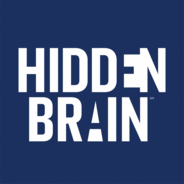Editor's note, December 6, 2024: Since we first published this episode with Francesca Gino in 2018, other researchers have raised concerns about the integrity of her work. In 2023, a group of scientists publicly alleged that she had fabricated data in some of her studies. You can find more information about their analysis at Data Colada.org. Gino has denied these allegations.A number of Francesca Gino’s studies have been retracted by the journals that published them, including a study about karaoke that is referenced in this episode. Francesca Gino studies rebels — people who practice "positive deviance" and achieve incredible feats of imagination. They know how, and when, to break the rules that should be broken. So how can you activate your own inner non-conformist? We kick off this year's You 2.0 series by pondering this question. Hosted by Simplecast, an AdsWizz company. See pcm.adswizz.com for information about our collection and use of personal data for advertising.

Wissenschaft & Technik
Hidden Brain Folgen
Why do I feel stuck? How can I become more creative? What can I do to improve my relationships? If you’ve ever asked yourself these questions, you’re not alone. On Hidden Brain, we help you understand your own mind — and the minds of the people around you. (We're routinely rated the #1 science podcast in the United States.) Hosted by veteran science journalist Shankar Vedantam.
Folgen von Hidden Brain
587 Folgen
-
Folge vom 24.07.2018You 2.0: Rebel With A Cause
-
Folge vom 20.07.2018Radio Replay: Watch Your MouthIf you're bilingual or multilingual, you may have noticed that different languages make you stretch in different ways. In this month's Radio Replay, we ask whether the structure of the languages we speak can change the way we see the world. We'll also look at how languages evolve, and why we're sometimes resistant to those changes. Hosted by Simplecast, an AdsWizz company. See pcm.adswizz.com for information about our collection and use of personal data for advertising.
-
Folge vom 17.07.2018Creating GodIf you've taken part in a religious service, have you ever stopped to think about how it all came to be? How did people become believers? Where did the rituals come from? And most of all, what purpose does it all serve? This week, we explore these questions with psychologist Azim Shariff, who argues that we can think of religion from a Darwinian perspective, as an innovation that helped human societies to survive and flourish. Hosted by Simplecast, an AdsWizz company. See pcm.adswizz.com for information about our collection and use of personal data for advertising.
-
Folge vom 10.07.2018Snooki and the HandbagLook down at what you're wearing. You picked out that blue shirt, right? And those sandals — you decided on those because they're comfortable, didn't you? Well, maybe not. Researcher Jonah Berger says we tend to be pretty good at recognizing how influences like product placement and peer pressure affect other people's choices...but we're not so good at recognizing those forces in our own decisions. We talked with him in December 2016. Hosted by Simplecast, an AdsWizz company. See pcm.adswizz.com for information about our collection and use of personal data for advertising.
